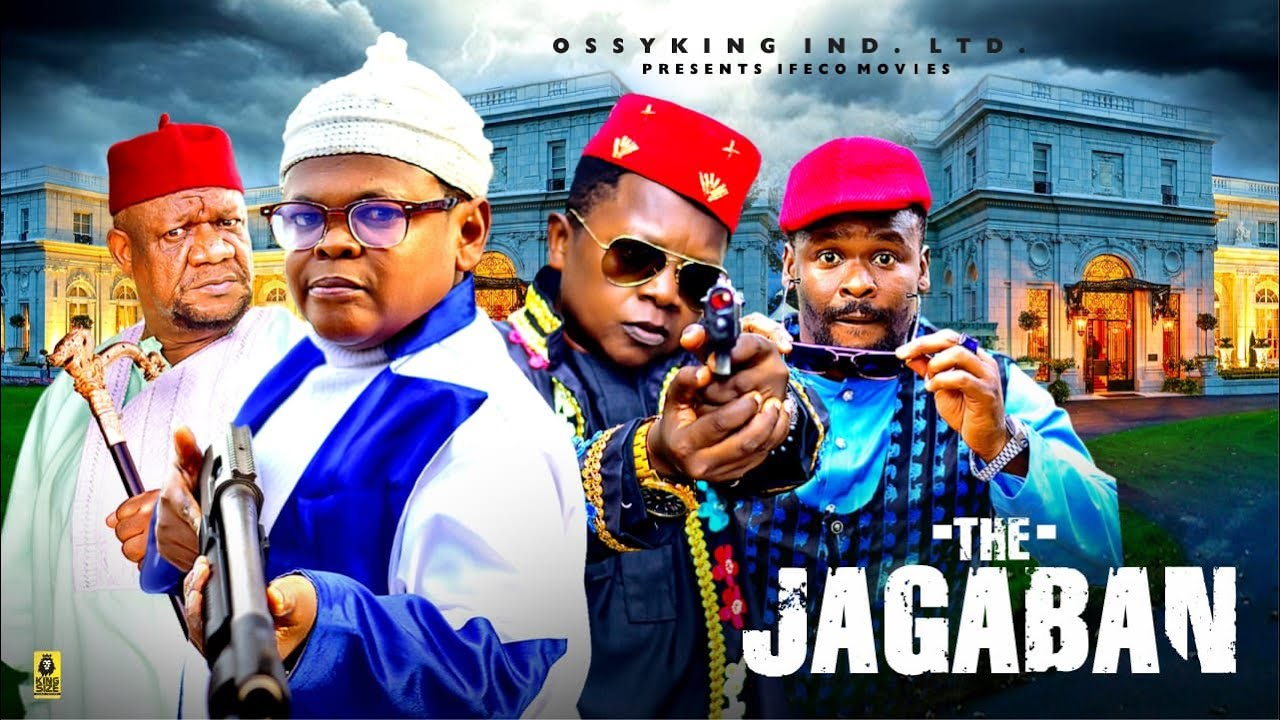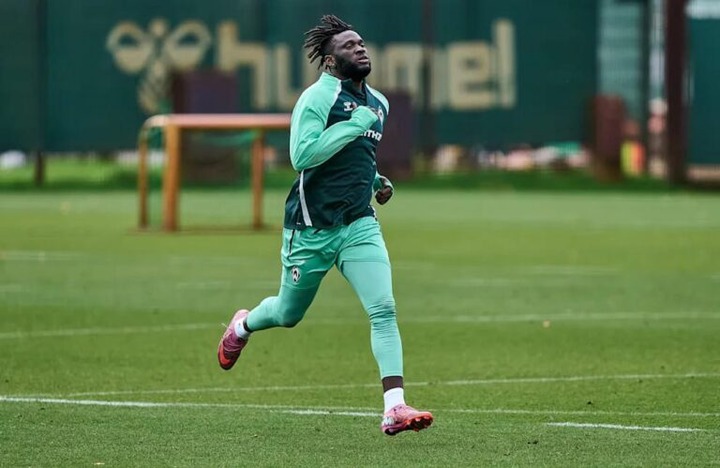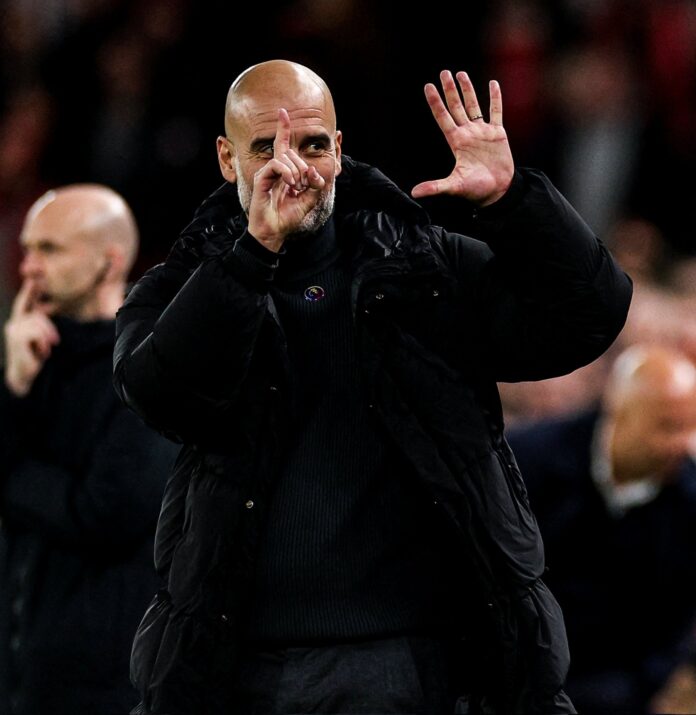A Nollywood Sequel That Puts the ‘Action’ in Existential Crisis
When the cast list features a triumvirate of Nollywood heavyweights—the commanding menace of Zubby Michael, the comedic genius of Osita Iheme, and the transformative talent of Chinedu Ikedieze—you don’t just walk into the cinema (or click the YouTube link), you brace yourself for a storm. The Jagaban 3, the latest installment in this saga of power, betrayal, and spiritual warfare, promised chaos, and it delivered on every single count.
This isn’t a film for the faint of heart, nor for those seeking Hollywood-level polish. This is a movie carved from the very essence of Nigerian drama: theatrical, loud, spiritually charged, and morally unforgiving. It’s relentless. It’s complicated. And for fans of the genre, it’s necessary viewing.
Rating: ……………..5 / 5 Stars: Unfiltered Drama, Uneven Execution
Summary of Verdict: The Jagaban 3 is a high-octane, triple-threat revenge epic that attempts to weave together political gang wars, marital betrayal, and ancient spiritual curses in a tight 79-minute runtime. The core strength lies in the electrifying, unhinged performances, particularly from Zubby Michael, and the ambitious nature of the spiritual storyline (the “Son as Native Doctor” arc). However, the screenplay struggles with Plot Cohesion, often rushing pivotal emotional beats in favor of jumping back to the main gang war. Technically, the film relies heavily on its star power and thematic intensity to override its low-budget aesthetic. It is a thrilling, if structurally messy, example of the genre at its most raw and compelling.
I. Narrative and Screenplay: Juggling Three Too-Big Stories
The biggest challenge facing The Jagaban 3 is its own ambition. The screenplay, instead of focusing on one central conflict, introduces three massive, mutually destructive arcs:
The Rise of the Revenger: An unnamed woman, fueled by betrayal, declares “it’s payback time” and warns that the “demon in me” has been awakened. This is the overarching theme—the consequences of stepping on the small man/woman.
The Domestic Holocaust (Augusta and Paris): This arc, involving the husband Paris impregnating other women and his wife Augusta orchestrating the murder of his unborn children, is the most visceral and emotionally devastating.
The Spiritual Epic (King Silly vs. Ibu): The villainous King Silly is tasked with sacrificing his own son, Ibu, only to discover Ibu has been adopted and is now a terrifyingly powerful native doctor who has enslaved Silly’s own boys.
Plot Cohesion: Too Many Chefs, Too Much Fire
The film’s need to give screen time to its various stars leads to a frantic, disorienting pace. The viewer is jerked from the sight of the betrayed wife bleeding out after taking the ‘vitamin pill’ (actually an abortion pill) to the tense standoff between Zubby Michael’s character and his spiritual adversaries.
The King Silly/Ibu arc has the potential for a sprawling spiritual epic, a father’s literal battle against his own bloodline for a dark ritual. Yet, this incredible premise—the son you need for sacrifice is now the most powerful person in the city—feels underserved, often reduced to a few highly dramatic scenes that leave you wanting more of the spiritual politics.
The editing style, common in this form of Nollywood filmmaking, is a double-edged sword: it keeps the energy high, but it sacrifices the time needed to mourn or truly feel the emotional weight of events, such as the destruction of King Silly’s warehouse or Paris’s confession of infidelity.
The Power of Theatrical Dialogue
Where the screenplay shines is in its dialogue. It is heavy with theatrical weight, built for maximum impact in confrontation. Lines like King Silly’s declaration to his rival, “You have played your home video, now get ready for the cinema,” are instantly quotable and perfectly capture the high-stakes, almost political nature of their rivalry.
The dialogue in the spiritual scenes is equally compelling, relying on a powerful, culturally rooted use of idiom, curse, and prayer. When a character is told “You are just a butterfly that thinks itself a bird,” the insult is far more devastating than a simple vulgarity, demonstrating a deep cultural lexicon at play.
II. Character and Performance: The Unstoppable Force
The film is held together almost entirely by the sheer force of its cast, particularly in their ability to pivot between raw anger and profound desperation.
Zubby Michael: The Reigning King of Menace
Zubby Michael, as the primary aggressor (King Silly), is the film’s chaotic core. He doesn’t just act angry; he is anger, radiating threat in every glare and gesture. His delivery of the revenge manifesto—promising to kill the rival’s mother, father, wife, and uncle, and then bury the body in his own house—is vintage, unrestrained Michael. His performance sells the terrifying nature of the Jagaban, the undisputed power broker whose word is law and whose anger promises utter annihilation. The final confrontation where he desperately tries to reclaim his son shows a momentary crack in his armor, revealing the man beneath the monster, but only for a moment.
Chinedu Ikedieze: A Spiritual Revelation
The most intriguing casting choice is Chinedu Ikedieze (Aki), who is predominantly known for his comedic roles. Here, he transforms into the fearsome native doctor, Ibu. This is a masterstroke of casting—the actor known for light-hearted mischief now sits as the imposing spiritual authority. Ibu’s quiet power is a stark contrast to Michael’s explosive rage. When he speaks, the air is thick with spiritual authority. His ability to make King Silly’s own boys run household errands is a fantastic visual metaphor for the shift in the balance of power, proving that spiritual might trumps physical force in this universe.
The Betrayed Women: Augusta’s Transformation
The plot involving Paris and Augusta is arguably the film’s emotional anchor. Augusta’s spiral is a classic tale of a wife pushed to the brink by her husband’s infidelity. When the doctor (Dr. Steve) reveals he was sent to give the abortion pill, the extent of Augusta’s calculated vengeance is chilling. She is cold, unforgiving, and utterly driven. Her command to kill Paris after he points a gun at her—”Kill him and bury him where nobody will find him”—is a moment of final, tragic brokenness. This arc powerfully explores what happens when a powerful man’s arrogance destroys the loyalty he depends on, turning his home into his worst battlefield.
III. Technical Execution and Direction: Raw Nollywood Energy
The Jagaban 3 is not a film that attempts to mask its constraints; it leans into the rawness that characterizes its genre.
The Staging of Spiritual Combat
The spiritual action sequences are the film’s unique selling point. They lack the glossy CGI of international blockbusters, but they pulse with cultural authenticity and intense energy. The scene where a character undergoes a “fortification” ritual, agreeing to be “cooked alive in the pot of organigu,” to gain protection from the spirit of death, is visually striking and thematically daring.
Similarly, the confrontation at Ibu’s shrine is staged like a high-stakes duel, blending traditional chants, smoke, and dramatic physical acting to convey supernatural power. The lack of clean, clinical action enhances the feeling of desperation and brute force, particularly in the chaotic shoot-outs.
Cinematography and Editing: The Rushed Close-Up
The cinematography is utilitarian. The focus is on capturing the intensity of the performance, often relying on jarring close-ups during confrontations to maximize the drama. While this is effective for individual emotional outbursts (like Zubby’s threat monologues), the overall visual quality is inconsistent. The rapid transitions between the three active storylines feel less like seamless cutting and more like urgent scene changes, reinforcing the sense of unstable plot cohesion.
Sound and Music: Driving the Drama
The score is critical to The Jagaban 3 experience. It’s often bombastic and constantly working to elevate the tension. Heavy synth-horn melodies and dramatic percussions are deployed whenever a character makes a threat or faces peril. The music acts as a non-stop drumbeat of anxiety, a crucial stylistic element that tells the audience, “The stakes are always high.” While sometimes intrusive, it is perfectly tailored to the film’s unapologetically loud, sensationalist tone.
IV. Themes and Cultural Relevance: The Cost of Absolute Power
The Jagaban 3 is fundamentally a morality play about power and its limits.
The central thesis of the film is that betrayal ripples across every sphere—from the matrimonial bed to the spiritual altar. Paris’s infidelity (personal betrayal) leads to murder (domestic consequence), which is paralleled by King Silly’s ambition (political betrayal) leading to a deadly spiritual standoff with his own son (existential consequence). The film strongly emphasizes that the rule of law is superseded by the rule of consequence, often administered by spiritual forces (the native doctor) or by self-declared “Jagabans” (gang leaders).
The theme of Traditional Spirituality is pervasive and treated with seriousness. The film shows that true power doesn’t just come from owning warehouses or possessing a gun, but from spiritual fortification and knowing the “old ways.” The narrative positions Ibu, the native doctor, as the ultimate, unconquerable threat, suggesting that even modern, gangster capitalism must bow to the ancient forces of the land. The presence of the Christian preacher (breaking curses) offers a parallel, contrasting form of spiritual solution, demonstrating the dual spiritual landscape of contemporary Nigeria.
Conclusion: A Required Viewing for the Nollywood Enthusiast
The Jagaban 3 is a film that demands to be met on its own terms. It’s not a subtle cinematic masterpiece; it’s an hour and nineteen minutes of pure, high-stakes, uncompromising Nigerian drama. It successfully deploys its star power, utilizing Zubby Michael’s iconic intensity and giving us a memorable spiritual transformation for Chinedu Ikedieze.
While the story is overcrowded and the pacing uneven, the film delivers moments of genuinely thrilling theatre, particularly within its spiritual and confrontational scenes. It is a powerful, if messy, cultural artifact about the devastating consequences of arrogance and betrayal.
Call-to-Watch: If you are a fan of these iconic actors, if you appreciate action-packed dramas where spiritual power meets political warfare, and if you want to see pure, unrestrained Nollywood storytelling, then grab your drinks and watch “The Jagaban “3 right now. You won’t be bored.
#NollywoodTimes
#NollywoodAction
#ZubbyMichael
#TheJagaban















Leave a Reply